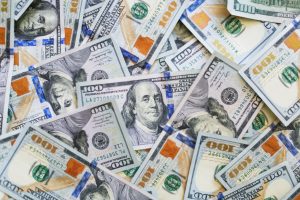After a brief delay, Raimbek Matraimov’s trial began and ended in Bishkek in a single session this week. Matraimov pleaded guilty, testified against two other customs officials, and was fined 260,000 Kyrgyz soms ($3,087). The small fine, plus the 2 billion som (1.4 billion som in cash and 600 million som in real estate) he previously agreed to pay back to state coffers under President Sadyr Japarov’s “economic amnesty” plan, is all the punishment Matraimov has to show for his involvement in a $700 million scheme to smuggle goods from China through Kyrgyzstan.
As deputy head of the customs service, it was Matraimov’s palms that were greased. A group of tenacious investigative journalists under the joint umbrellas of OCCRP, RFE/RL, and Kloop outlined in excruciating detail Matraimov’s involvement in aiding and abetting the operations of a “smuggling empire” run by a secretive Uyghur family. The first reports in the investigation landed less than two weeks after Aierken Saimaiti, a main source and a former money launderer working for Matraimov, was murdered in Istanbul. Subsequent reports have highlighted the ostentatious wealth of the Matraimov family and its powerful background influence on Kyrgyz politics.
The Matraimov family responded in early 2020 to the reports with denials and a lawsuit alleging libel against the journalists. As of mid-January 2021, the lawsuit was apparently still ongoing, with a judge delaying a hearing on account of Matraimov and his wife changing their names.
Per a transcript of the proceedings posted by Kloop, it’s clear that the state and Matraimov agree that his corruption amounted only to the 2 billion soms he previously agreed to repay. Kyrgyz authorities also brought cases against the heads of Southwest and Baken customs, Nurlan Rajabaliev and Abdybahab Boronbaev, who assisted in the scheme in which they artificially lowered the value of goods so importers paid lower customs duties. Rajabaliev pleaded guilty in early February and was also fined 260,000 Kyrgyz soms, according to 24.kg.
Matraimov’s arrest, and swift release, in October was one shocking twist in an exceptionally shocking and twisted month. A parliamentary election on October 4 triggered protests that saw the annulling of the results, the rise of Japarov from prisoner to prime minister, the ouster of President Sooronbay Jeenbekov by mid-month, and then the arrest of Matraimov and the announcement, by Japarov, of an economic amnesty program that would enable the corrupt to pay back what they stole and go on their way. Japarov went on to run for president in early January. In addition to being elected, he scored another victory with 80 percent of those casting ballots supporting a shift in government system from parliamentary to presidential. Another referendum set for April will put a new constitution up for a vote, though not many have seen the draft.
Japarov has had to bat back accusations of ties to organized crime since his escape from prison and rise to the presidency. He’s cast his “economic amnesty” scheme as a way for corrupt Kyrgyz officials to settle up and move the country forward, but others view it as cosmetic punishment for crimes that have consistently bled the Kyrgyz state and its citizens of desperately needed funds.
The anticlimactic and swift end of the Matraimov trial will do Japarov few favors in convincing external audiences of his anti-corruption credentials. A man scathingly nicknamed Raim “Millionaire,” whom the United States designated for sanctions under the Global Magnitsky Act, getting off with a small fine and a few ceded apartments doesn’t seem like justice.

































